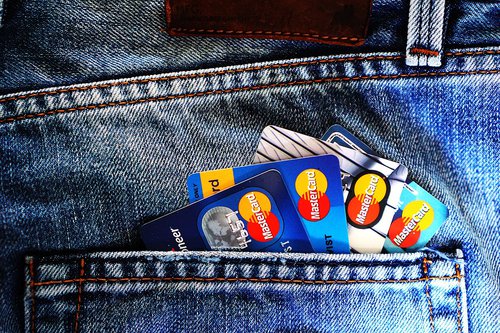
CREDIT SCORES
 Credit scores affect everyone because lenders use them to determine who qualifies for financial transactions such as getting a loan or securing a credit card without collateral. Landlords may use them to determine who is worthy of renting an apartment. Your ability to purchase a big-ticket item by financing it can be determined by a credit score. If nothing else, borrowing even a small sum of money is more expensive when your score is low.
Credit scores affect everyone because lenders use them to determine who qualifies for financial transactions such as getting a loan or securing a credit card without collateral. Landlords may use them to determine who is worthy of renting an apartment. Your ability to purchase a big-ticket item by financing it can be determined by a credit score. If nothing else, borrowing even a small sum of money is more expensive when your score is low.
The two major types of credit scores are FICO and VantageScore. The first was introduced by the Fair Isaac Corp. in 1956. The second debuted in 2006 as a joint venture of TransUnion, Experian and Equifax, the three major credit bureaus. Currently, FICO is the more widely used of the two. FICO scores range from 300 - 850. A range of 800 - 850 is excellent. A score of 750 - 799 is considered very good. On the other end, a rating of 300 - 599 is very poor. To get a loan with good terms, a borrower usually needs a score above 650. Consumers should be aware that scores will vary even between the three credit bureaus, and just like computer software, there are different versions of the rating system.
How Credit Scores Are Determined
As factors in determining credit scores, FICO and VantageScore look at payment history, current debts, length of credit and new credit accounts. They also look at the kinds of credit in use. These may include auto, mortgage, major credit cards and cards from retail stores. Though the variety of credit in use accounts for 10 percent of the credit score, the most important factor in determining it is paying bills on time. It accounts for 35 percent of the FICO score.
How much the consumer owes also affects the evaluation significantly, accounting for 30 percent of the credit score. Maxing out credit is an indication that a person may be overextended, and this action can lower the credit score. Many credit experts advise people to keep their balances below 30 percent of their limits in order to keep their credit score high. Lenders frown on new borrowers who open a number of credit accounts in a short period of time. These accounts make up 10 percent of a credit score. How long a person has had credit garners 15 percent of the evaluation pie.
More Tips for a Good Credit Score
Consumers should pay off their bills rather than choosing balance transfers. It is advisable to keep all accounts open even the ones that are seldom used. When account holders fall behind, resume timely payments as quickly as possible because a steady history of on-time payments will eventually outweigh a difficult period.
VantageScore Good for Establishing Credit
VantageScore aids people who need credit score help because they want to establish credit or do not have a long credit history by reporting about consumers’ credit after an account has been open for just one month. FICO, on the other hand, requires that an account be open for at least six months. In looking to establish credit, people should ensure that the issuer of their credit card, loan or even their landlord reports details about credit transactions. Though It is not mandatory that credit history be reported, consumers may ask that it is.
The importance of credit scores makes it wise for consumers to correct any errors on their credit report. Mistakes may occur as a result of a clerical error, an incorrect social security number, a misapplication of information about payments and loans to the wrong account and more. To dispute, consumers contact both the credit bureau and the entity that reported the erroneous information. Lawyers may be able to provide credit score help in guiding consumers through the correction process.
Our friendly staff here at Georgia Debt Relief in Savannah GA has a lot more answers to your questions. Contact us anytime and we’ll see what we can do for you if your debt has gotten out of control.